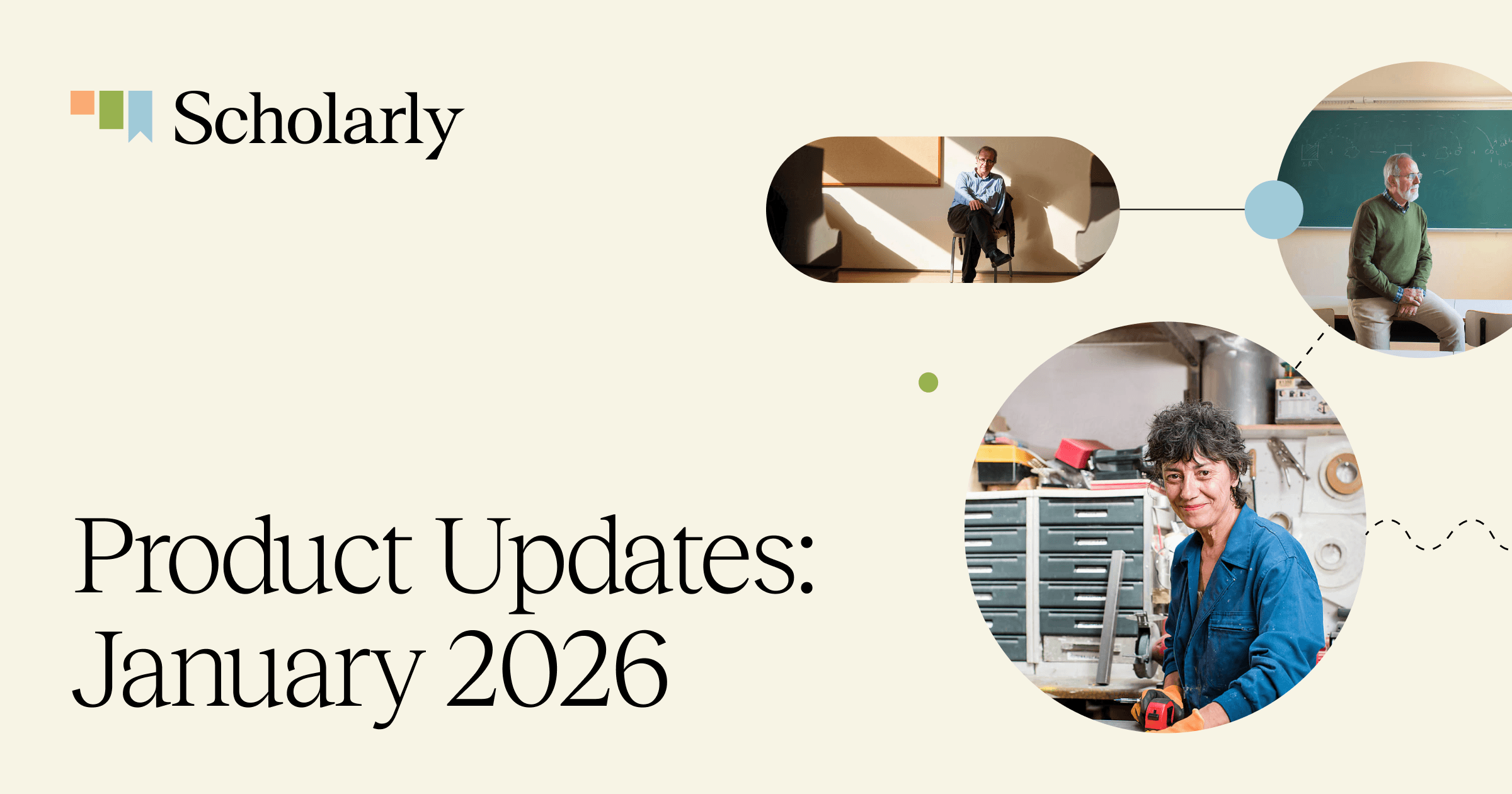Summary
In May 2025, Scholarly Software, Inc. introduced significant updates to its platform, focusing on enhancing collaborative workflows, improving accessibility, and streamlining data integrations. The workflow engine now supports multiple reviewers per step, cleaner admin views, and easier editing—making processes like faculty evaluations and promotions more efficient. Accessibility was prioritized with a new public accessibility page, WCAG-driven UI improvements, and better PDF generation for users with disabilities. Data integrations with Banner Ethos and Workday have been made more transparent and reliable, while the AI Assistant now provides faster, more accurate responses and richer expertise tagging. These updates underscore Scholarly’s commitment to responsible, user-centered innovation in higher education administration.
- What improvements were made to Scholarly’s workflow engine in May 2025? * The workflow engine now allows multiple reviewers per step, offers redesigned admin views, enables faster edits, and introduces instant workflow previews for easier management. (Source)
- How is Scholarly addressing accessibility? * Scholarly added a detailed accessibility page, implemented WCAG-driven UI enhancements, and improved PDF generation to better support users with disabilities. (Source)
- What updates were made to data integrations? * Integrations with Banner Ethos and Workday now feature clearer sync reports and daily automated data pulls, while login processes have been simplified for institutions using employee-ID credentials.
- How has the AI Assistant improved? * The AI Assistant now uses the GPT 4.1 model for more accurate citations and faster replies, and has auto-generated over 7,000 new expertise tags to enhance search results.
- What quality-of-life enhancements were included? * Faculty lists under expertise tags are now sorted by last name, dashboard and workflow pages are faster, and several UI bugs have been fixed for a smoother user experience.
Scholarly continues to prioritize user feedback and responsible innovation, ensuring that higher education institutions benefit from secure, efficient, and accessible administrative tools. As always, Scholarly invites users to share their thoughts and book a demo to see the latest features in action.






